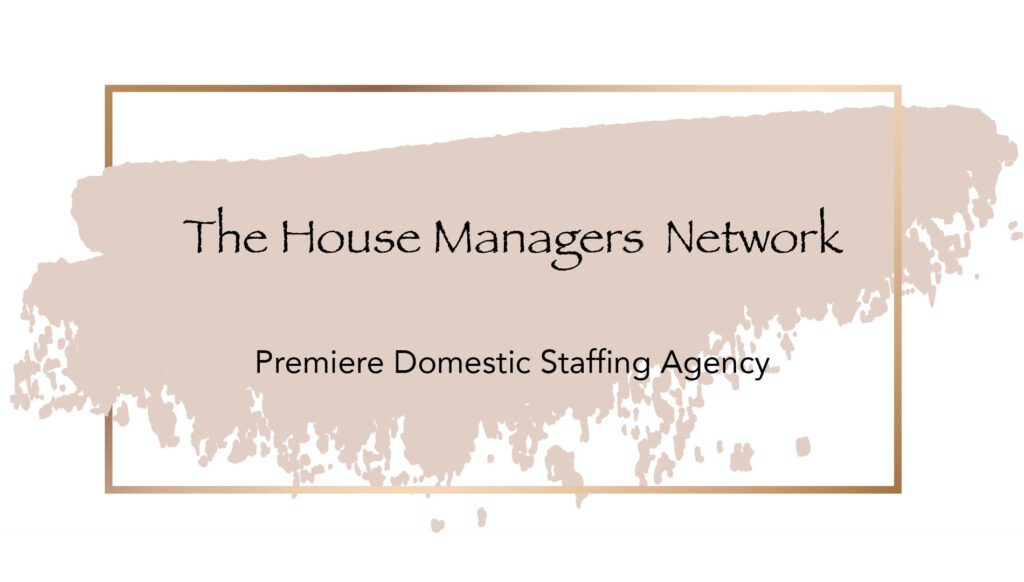
Private Service Roles (Executive Office)
In the private domestic sector, the roles of major domo and house manager play vital roles in overseeing and managing the operations of a household. While both positions involve responsibilities related to household management, there are distinct differences that set them apart. This essay aims to explore and compare the roles of a major domo and a house manager, highlighting their key responsibilities, skills required, and the overall impact they have on the efficient functioning of a private household.
I. Responsibilities of a Major Domo:
A major domo, often considered the “head of the house,” assumes a senior-level position with comprehensive responsibilities. Their primary duties include:
1. Leadership and Staff Management:
– Overseeing and managing a team of household staff, such as housekeepers, chefs, and nannies.
– Coordinating staff schedules, tasks, and performance evaluations.
– Ensuring high standards of service and hospitality are maintained throughout the household.
2. Logistics and Operations:
– Handling the logistical aspects of the household, including managing budgets, procurement of supplies, and maintaining inventory.
– Overseeing event planning and coordination, both within the household and for external engagements.
– Managing household schedules, travel arrangements, and guest accommodations.
3. Standards and Protocols:
– Setting and maintaining strict standards for cleanliness, organization, and efficiency in all areas of the household.
– Implementing protocols for formal dining, table settings, and etiquette.
– Upholding confidentiality and discretion in handling sensitive information and matters within the household.
II. Responsibilities of a House Manager:
A house manager focuses on the day-to-day operations and management of a household. Their key responsibilities include:
1. Household Administration:
– Handling administrative tasks such as managing calendars, scheduling appointments, and coordinating household activities.
– Managing household finances, including budgeting, bill payments, and expense tracking.
– Maintaining records and documentation related to household operations and maintenance.
2. Staff Coordination and Supervision:
– Managing and supervising household staff, assigning tasks, and ensuring efficient collaboration among team members.
– Conducting staff training and development programs to enhance skills and maintain consistent service standards.
– Overseeing recruitment processes and assisting with hiring new staff members as needed.
3. Maintenance and Operations:
– Organizing and coordinating maintenance and repair activities for the household, including managing external contractors and service providers.
– Ensuring the proper functioning of household systems such as HVAC, plumbing, electrical, and security systems.
– Managing household inventories and supplies, restocking as necessary.
III. Key Differences:
While both major domos and house managers share responsibilities related to household management, several key differences set them apart:
1. Hierarchy and Scope of Responsibility:
– Major domos typically occupy higher positions within the household hierarchy, overseeing multiple departments and staff members.
– House managers have a narrower focus, primarily managing day-to-day operations and administrative tasks.
2. Emphasis on Service and Hospitality:
– Major domos often prioritize maintaining the highest level of service and hospitality, ensuring that guests’ needs and expectations are met.
– House managers focus on the smooth functioning of the household, prioritizing efficiency and organization.
3. Formality and Protocol:
– Major domos play a significant role in implementing and maintaining formalities, protocols, and etiquette within the household, particularly in formal dining and event settings.
– House managers may also be involved in event planning and coordination but typically focus less on formalities.
In conclusion, while major domos and house managers both contribute to the effective management of a private household, they have distinct roles and responsibilities. A major domo’s position carries a higher level of authority and involves overseeing various aspects of the household, including staff management, logistics, and standards. On the other hand, a house manager focuses more on the day-to-day operations, administrative tasks, and coordination of staff. Understanding these differences is crucial for employers in determining the most suitable role based on their household’s specific needs and expectations. By recognizing the unique contributions of major domos and house managers, households can ensure efficient and well-managed operations that align with their desired standards of service and organization.
